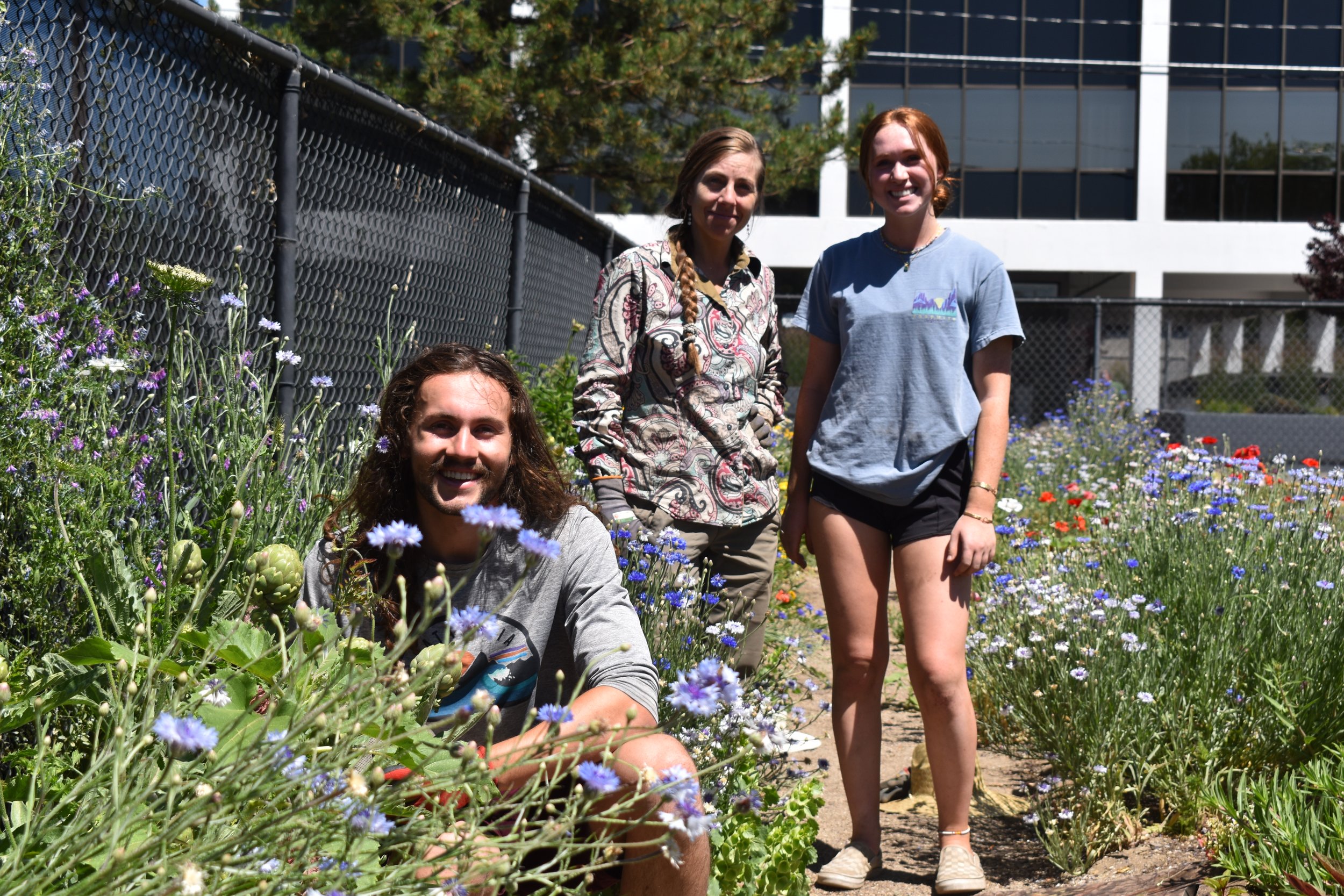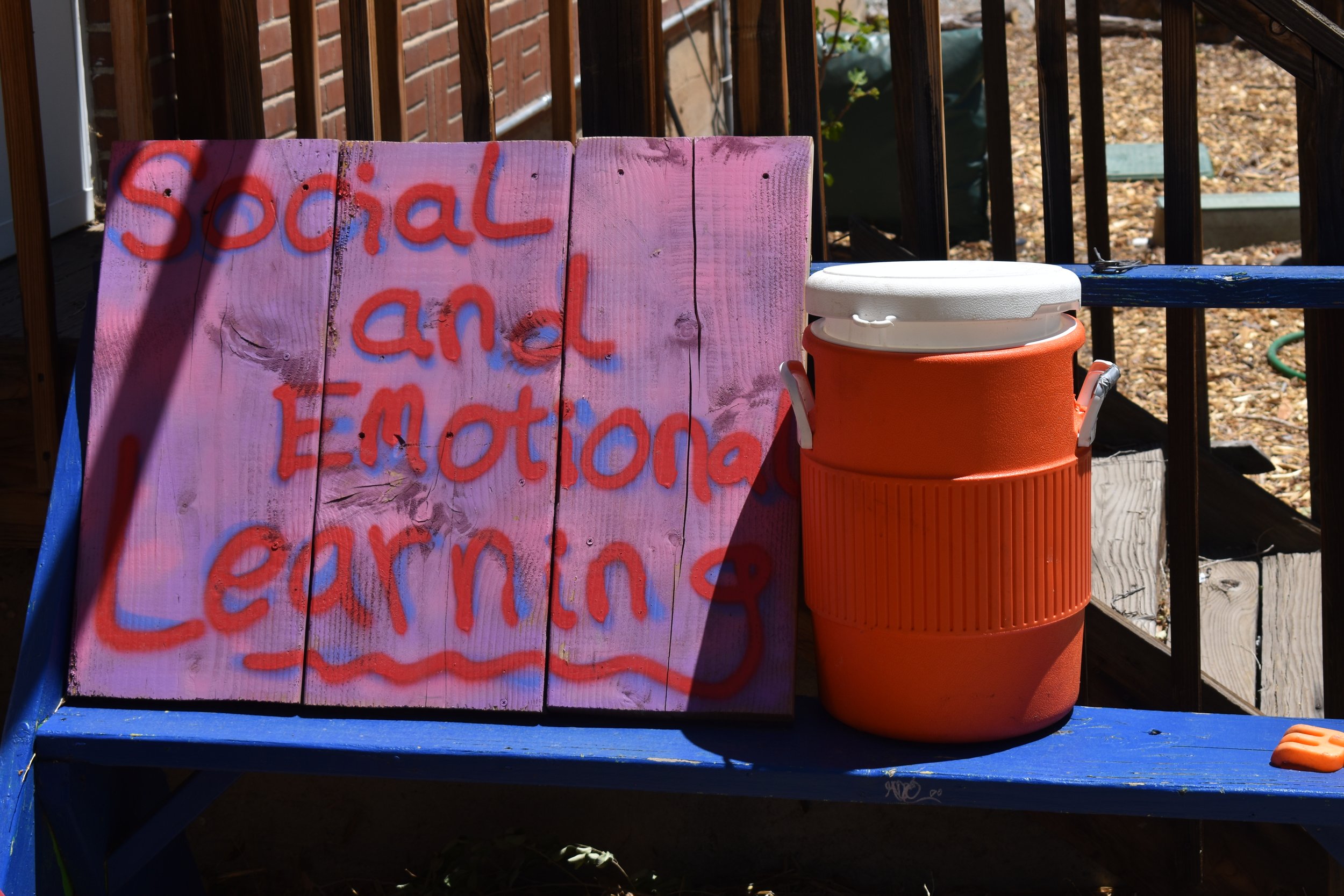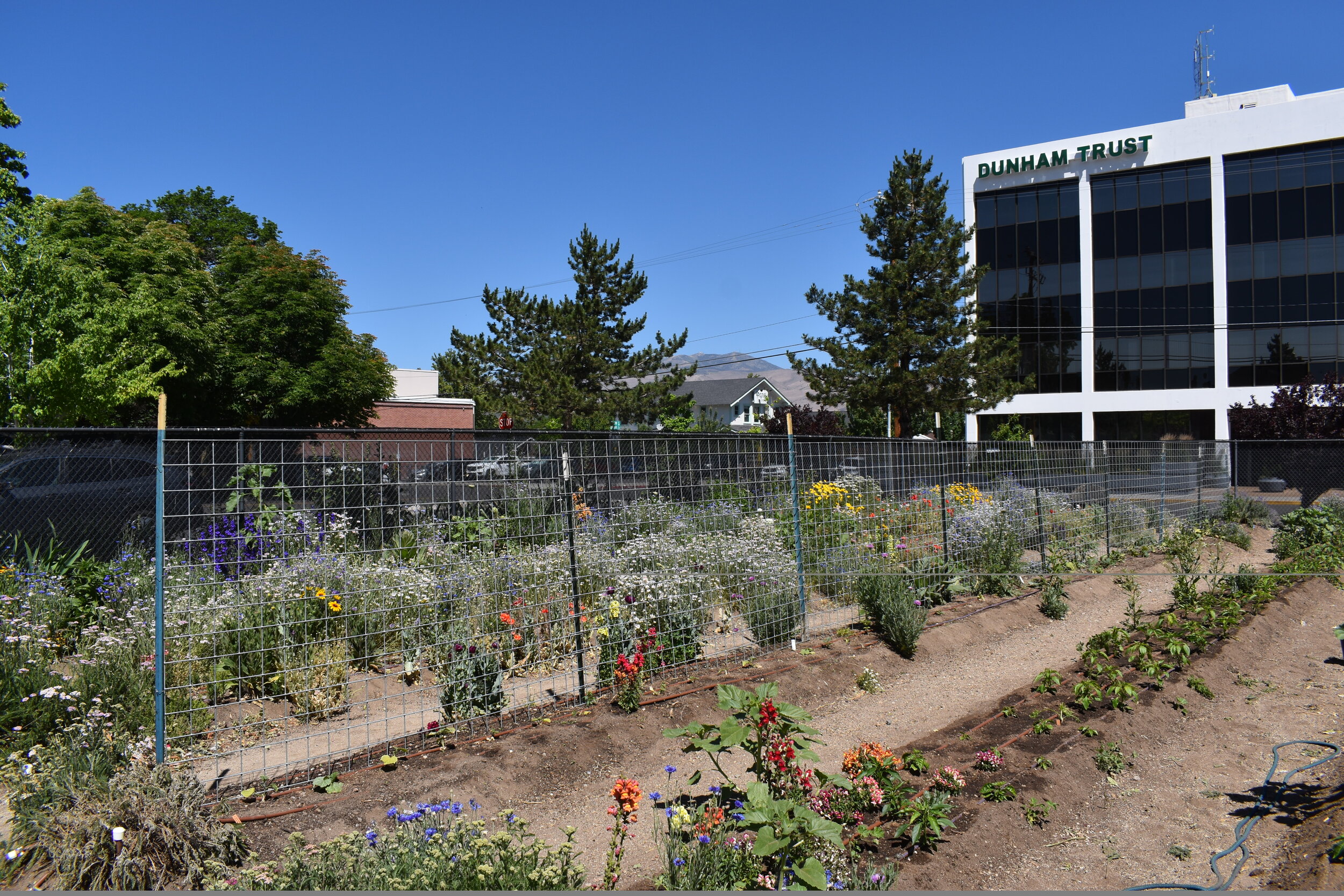According to the Farmily website, staff including founder Rebekah Stetson (in center of photo) are “currently building Katie's Garden… Named after Katie Weingartner, a bright, local young girl who tragically passed away crossing a street in Reno in 2017. The garden honors her as well as other youth in our community. Katie's Garden will be an educational site where community members can learn social emotional learning through regenerative agriculture. The garden is FARMily's largest site, utilizing over an acre of growing space.” Its location is on Foster Dr at the Bridge Church.
Reno is home to many different things. Depending on who you ask, some will point to the downtown casinos, the majestic courthouse, the up and down Truckee River or its many murals. It’s also becoming known for urban gardening, which includes multiplying initiatives by different groups, including Farmily, a local non-profit empowering children with green know how.
The organization operates four urban gardens, with three located right next to Boys and Girls Clubs, where kids at the program are invited to grow plants and food.
“We're teaching kids things like mindfulness and breath work and really how to reconnect with nature,” Rebekah Stetson, founder and CEO of Farmily, said. “The reason why that's our focus is because a lot of the health disparities that we're seeing, whether those are mental health or physical health, directly relate to people not being as in tune with what they're doing to their bodies, with their community. It's just a lack of attachment. We really aim to teach kids those skills because we know, based on research, that those serve us for a lifetime.”
Our Town Reno visited two of the four farm sites, and both were only a few miles from some of the biggest casinos in town. The Reno skyline is clearly visible, and the clutter of tall buildings is at odds with the flowers and recently planted produce at both sites. The Flint Street site is less than a mile from Wingfield Park, surrounded by tall banks and office buildings. It’s not located as close to a Boys and Girls Club as the other sites, but children will still visit on occasional field trips. Volunteers are welcome, and office workers will walk through the small farming space on their lunch breaks.
“Sharing your experience with people and then also having people share their experience with you is exactly such a cool thing about gardening and agriculture in general,” Philip Nasvik, Assistant Garden Manager and Director of Soil Health at FARMily, said. “People have their strengths and weaknesses in agriculture, just like they have in any other aspect of life . When you can share your knowledge, through the community and the network, that's when you really start to feel that it's something special and meaningful.”
After harvesting the crops and distributing the food to families, FARMily sends excess produce to a few different outreach groups who help distribute food to neighbors in need.
“They love that sense of purpose of planting something, watching it grow and then being able to eat it and share it with their family,” Stetson said of children who take part in the program. “It is really magical. I truly believe that we’re all creators, what we're meant to do is create things. It's such a satisfying experience to tend the land, grow something and then be able to share it with other people. A lot of volunteers come because they love the mission of what we do. They love helping other people, but they also love the zen nature of being in the garden.”
The sites grow more than vegetables and produce. Both sites that Our Town Reno visited grew flowers, to sustain a more complete ecosystem and protect insects and other pollinators. Stetson said the growing process at each site is entirely organic. No herbicides or pesticides are used. No artificial fertilizer is used, and FARMily makes its own compost for growing plants.
“All of our gardens are organic, but we also use permaculture principles,” Stetson said. “Permaculture is a way of looking at the world as a very interconnected ecosystem. It's important for us to have all sorts of different plants, fruits, vegetables, flowers, annual flowers, perennial flowers because then you have a more diverse ecosystem.”
Setting up a farm in the middle of the city brings with it a few changes compared to a farm on the outside of town. The nearby concrete raises the temperature, and FARMily has to manage its water to align with city guidelines. Nasvik said FARMily chooses plants and crops based on the conditions of Northern Nevada and the urban environment. But the urban farm’s convenient location means that students and other distributors are far closer than usual.
“Some urban farms are fortuitous because they're closer to where a market would be,” Stetson said. “If you were attending farmer's markets, then you don't have as many miles to logistically [to] get your food, which I guess is also beneficial for us. When we harvest, everyone that we distribute to is within a five mile radius of all of our sites.”


